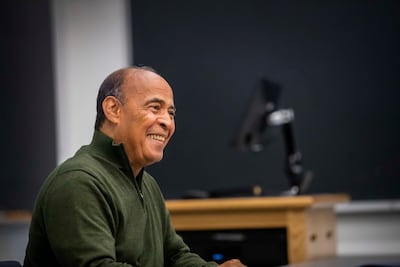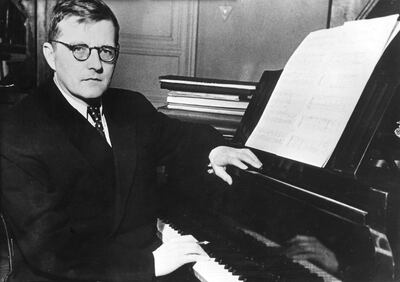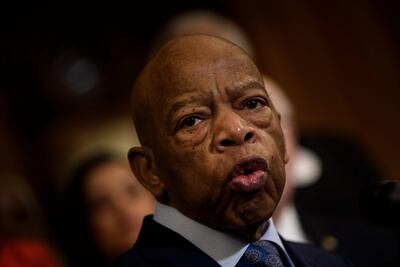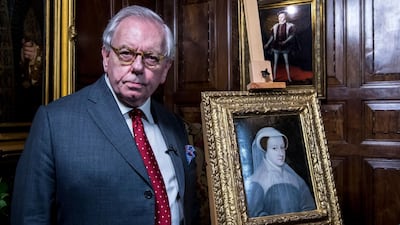The culture wars show no sign of abating. The latest to be condemned by hardline progressive youth is Adolph Reed, a black, Marxist professor who was due to give a speech to the New York chapter of the Democratic Socialists of America, but was disinvited because he believes that left-wingers currently concentrate too much on race at the expense of class.
This prompted outrage from a group within the chapter, who said that to give Mr Reed a platform would be “reactionary, class reductionist and at best tone deaf”. And that was that, for a man whom the Harvard academic Cornel West – who is also black – describes as “the greatest democratic theorist of his generation”.
We have to do better than this. We have to continue to be able to speak to each other. It is surely not beyond us to agree with the prominent black British educator Katharine Birbalsingh, who insists that "there is a middle way".

“Strive to have a complex understanding of race, the state, education etc. Think outside the box!” she tweeted recently. That would be both possible and positive.
For older liberals who value free speech more than the “right” to be safe from offensive or hurtful ideas can acknowledge that it is useful to talk much more about institutional racism and unconscious bias, the long-term effects of the Atlantic slave trade, and police actions that disproportionately affect black people. And the woke side could think a bit more about the gains we all make by being confronted with opinions we disagree with and possibly find objectionable or even distressing; not least in challenging, and in the process maybe strengthening, our convictions.
But for any progress to be made I believe we need the return of two concepts that have gone curiously missing in the increasingly divisive arguments: forgiveness and redemption.
Here it is instructive to look at the case of Dr David Starkey. An eminent scholar of English Tudor history, Dr Starkey also long had a lucrative sideline as a professional provocateur on TV and radio that led him to be known as “the rudest man in Britain”. Both careers came to an abrupt halt, however, after he gave an online interview last month. While discussing the Black Lives Matter movement with his host, Dr Starkey, who is white, said: “Slavery was not genocide, otherwise there wouldn’t be so many damn blacks in Africa or in Britain, would there?”
Dr Starkey was arguably correct that, however abominable it was, the slave trade did not meet traditional definitions of genocide. The “damn blacks”, though, well and truly sunk him. Almost immediately he was dropped by both his past and present publishers, and he resigned or was sacked from positions at Cambridge and Canterbury Christ Church universities, from fellowships and board positions, had an honorary degree revoked and had a medal from a historical society withdrawn.
Since then he has been almost literally “cancelled”. He has, as he said, lost “every distinction and honour acquired in a long career". I have not read one word of sympathy – not defence – for a man who was a household name for at least 20 years. He has apologised abjectly, of course, but it appears that no one wants to hear from him ever again. Dr David Starkey has become a non-person.
I find this deeply troubling for a number of reasons. Firstly, if he is a racist – and Ms Birbalsingh, who knows him, thinks he is (she still likes him) – we ought to ask why. Dr Starkey is not some asinine thug. He is highly intelligent. On purely rational grounds, how could he hold such a prejudice? He could not possibly defend it intellectually if debated by his peers. Wouldn’t exposing racism for the groundless bigotry that it is be a worthwhile exercise?

Secondly, and more importantly, how have we reached a point at which a sitting US President has boasted of committing crimes – sexually harassing women – and suffer no consequences from his own party, yet an admired historian and famous pundit can destroy his whole role in public life with two words? They were extremely abhorrent, yes: but is there no possibility for Dr Starkey to be forgiven? I have met and interviewed him, and do not think he is evil. Have we become so cruel that there can be no path to repentance and redemption for him?
The white British thinker Douglas Murray wrote about this issue in his 2019 book The Madness of Crowds : "What is a decent interval of time between an error and forgiveness? Does anybody know? Is anybody interested in working it out?"
There are as yet no answers, and if we have discarded these concepts entirely, that does not strike me as either a Christian or a Muslim response to sin: for both are religions of mercy. This is the judgement of the communist commissar; or actually even worse. It reminds me of the ostracism experienced by one Russian composer during the Stalinist terror in the 1930s, during which the following notice appeared in a newspaper: "Today there will be a concert by enemy of the people Dmitri Shostakovich." The musician was near suicidal with fear at the time; but at least he had a concert. There will be no lecture or TV programme from "enemy of the people" David Starkey.

This cannot be right. There has to be a road back. We have to allow people to change, and we must be able to disagree in a more civil manner. There is a way, which was expressed movingly by the white conservative New York Times columnist Bret Stephens, after the death of the great black American civil rights leader and congressman John Lewis last month.
Mr Lewis received heartfelt tributes from both left and right, wrote Mr Stephens, “because he operated from convictions of radical love. He saw humanity even in those who refused to see humanity in him".
Radical love: we could do with some of that. And if that is too much to ask, we must at least try to see the humanity in one another, our ideological foes as well as our friends. If we cannot do that, then I'm afraid all hope is lost.
Sholto Byrnes is a commentator and consultant in Kuala Lumpur and a corresponding fellow of the Erasmus Forum


